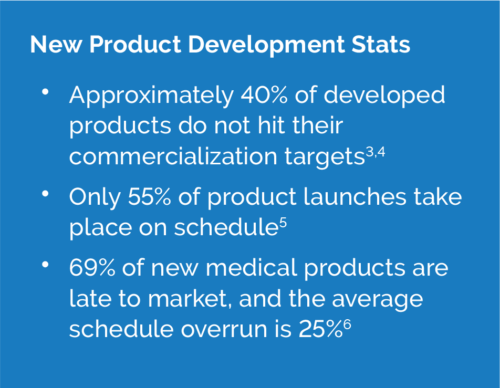It’s not uncommon to read about product launch failures in today’s headlines. In February 2022, Cruise, the autonomous vehicle subsidiary of General Motors, introduced its robotaxis to the San Francisco public. Shortly after, the California Department of Motor Vehicles suspended the driverless taxis due to several mishaps, including hitting a pedestrian.1 In 2016, Samsung launched the Galaxy Note 7 smartphone. More than 2.5 million units were recalled a few months later due to a battery flaw which caused the device to catch fire.2
How can manufacturers avoid these failures and reap the rewards of innovation?
Greater visibility into design for manufacturability (DFM) and quality issues early in the product development cycle may have enabled General Motors’ and Samsung’s teams to prevent their products from malfunctioning..

To minimize risks and achieve commercialization success, organizations must rethink traditional product development practices and embrace more modern approaches. This is especially critical in today’s global economy, as companies now deal with increased competition, evolving regulatory requirements, supply chain disruptions, and a shift to a virtual workforce.
In this ebook, we explore how cloud-native solutions provide manufacturers a more agile and collaborative framework to efficiently execute product work and accelerate innovation.
